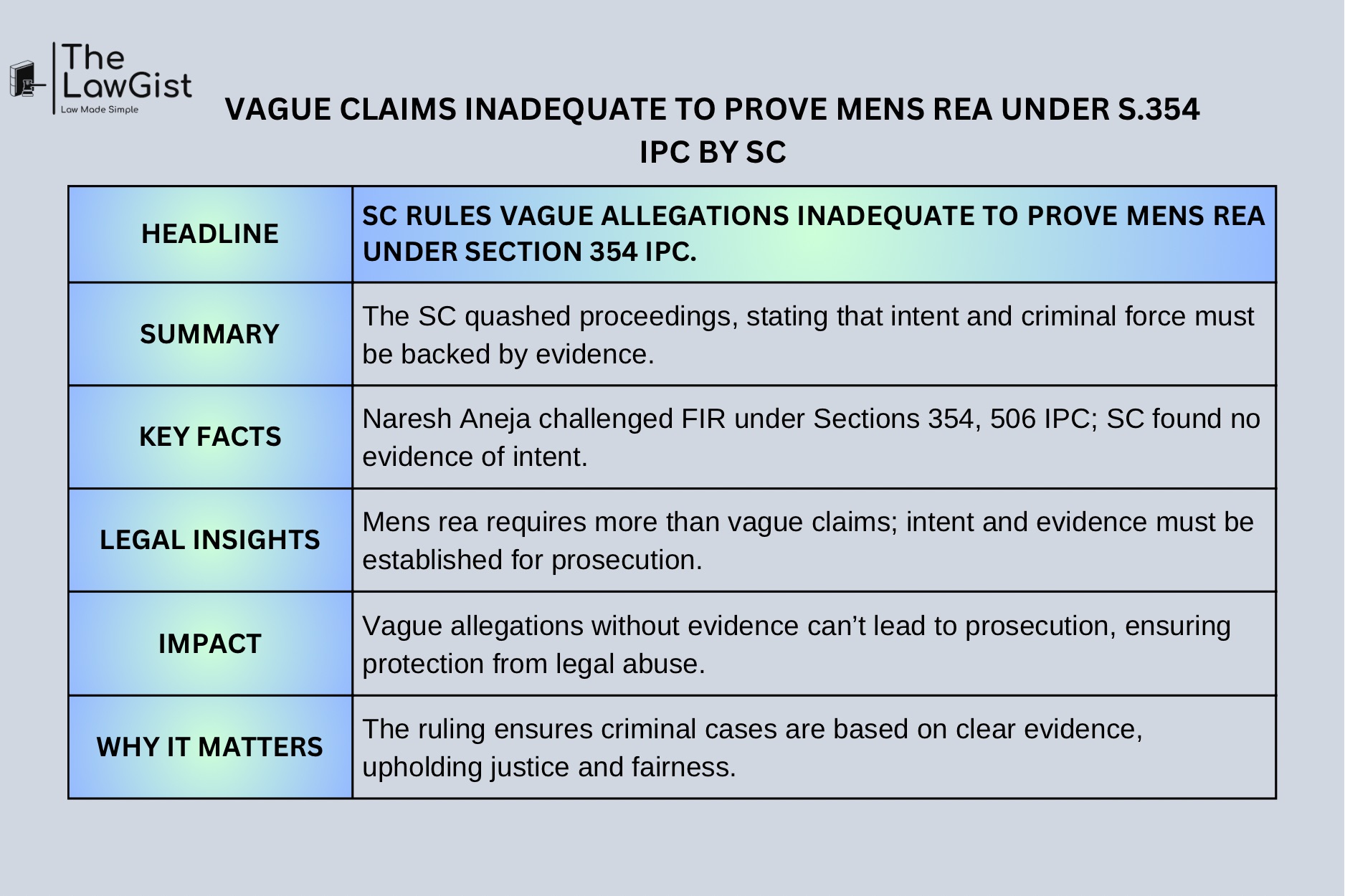 Headline
Headline
Mere making allegations without evidence do not establish offence U/S 354 IPC ruled by SC
Summary
The Supreme Court of India held that for an offence U/S 354 of the Indian Penal Code (IPC), criminal force must be used with intent to outrage the modesty of a woman. The criminal proceeding against the appellant was quashed by the Supreme Court because of no evidence of intent or criminal intimidation.
Key Facts
- Case Name: Naresh Aneja @ Naresh Kumar Aneja v. State of Uttar Pradesh & Anr
- Judges Name: Justice Sanjay Karol and Justice C.T. Ravikumar.
- The appellant was accused of improper workplace behavior.
- FIR filed under Sections 354 and 506 of Indian Penal Code (IPC); High Court declined to quash the complaint.
- The Supreme Court of India found no prima facie evidence of criminal force or intent to outrage modesty of a woman.
Legal Insights
The Supreme Court of India stresses that mens rea needs more than vague allegations. Without any evidence which shows intent, offences under Sections 354 and 506 IPC cannot stand. It restated the principles for quashing complaints, quoting Bhajan Lal and Muniswamy precedents.
Impact
The judgment highlights that vague allegations which are not supported by evidence cannot lead to criminal prosecution, safeguarding individuals from abuse of legal processes.
Why It Matters
The ruling focuses on the requirement of prima facie evidence for criminal cases, protecting against misuse of laws meant to safeguard women.
Source







